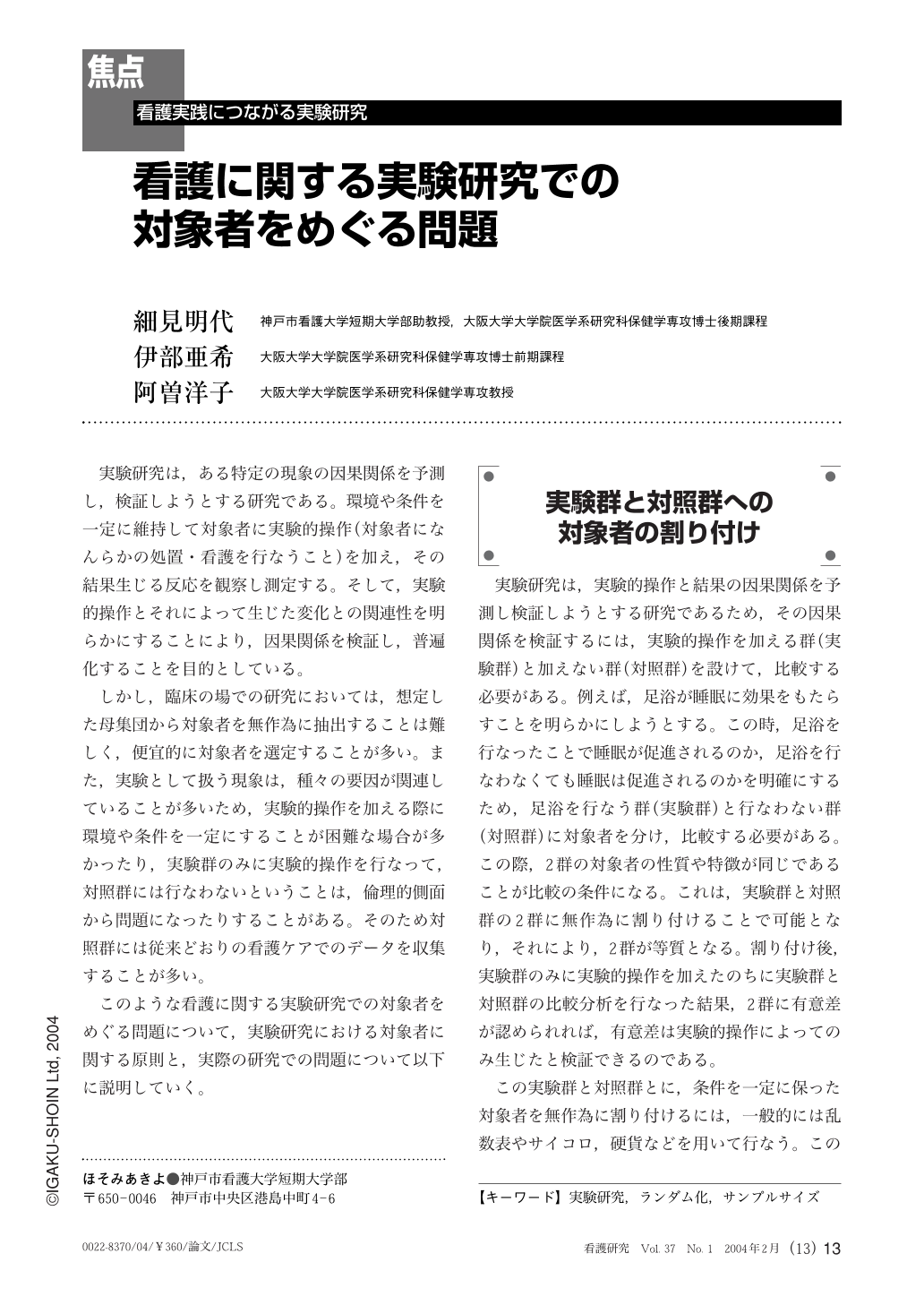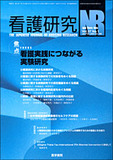Japanese
English
- 有料閲覧
- Abstract 文献概要
- 1ページ目 Look Inside
実験研究は,ある特定の現象の因果関係を予測し,検証しようとする研究である。環境や条件を一定に維持して対象者に実験的操作(対象者になんらかの処置・看護を行なうこと)を加え,その結果生じる反応を観察し測定する。そして,実験的操作とそれによって生じた変化との関連性を明らかにすることにより,因果関係を検証し,普遍化することを目的としている。
しかし,臨床の場での研究においては,想定した母集団から対象者を無作為に抽出することは難しく,便宜的に対象者を選定することが多い。また,実験として扱う現象は,種々の要因が関連していることが多いため,実験的操作を加える際に環境や条件を一定にすることが困難な場合が多かったり,実験群のみに実験的操作を行なって,対照群には行なわないということは,倫理的側面から問題になったりすることがある。そのため対照群には従来どおりの看護ケアでのデータを収集することが多い。
このような看護に関する実験研究での対象者をめぐる問題について,実験研究における対象者に関する原則と,実際の研究での問題について以下に説明していく。
In this paper, we discuss some points of sampling design in experimental research on nursing. The purpose of experimental research is to hypothesize and demonstrate the causality of variables in certain phenomena. In designing a sample, researchers should assign subjects to an experimental or a control group on a random basis to equalize groups; eliminate confounding factors to control the experimental situation; estimate the sample size needed for the study in advance; and identify the population of interest. However, in clinical settings, because the safety and comfort of patients takes precedent, researchers face a barrier when trying to design a sample in this way. For example, when researchers want to discover the effect of novel nursing care, they cannot ethically intervene only in an experimental group. Therefore, researchers practice new care on an experimental group and routine care on a control group. Thus, in clinical studies on nursing, researchers face problems with performing sampling design.

Copyright © 2004, Igaku-Shoin Ltd. All rights reserved.


